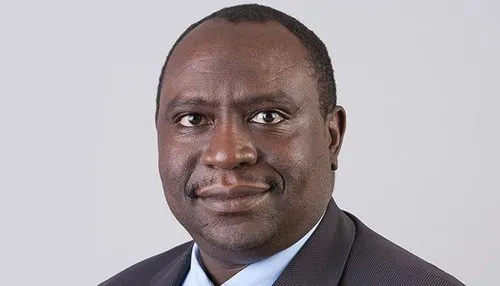ATIDI’s next bold steps in deepening its impact across Africa

Benjamin Mugisha, Chief Underwriting Officer at ATIDI
By Patrick Alushula, Africa Ahead
The African Trade & Investment Development Insurance (ATIDI) expects to play an increased role on the continent’s supply chain as the African Continental Free Trade Area (AfCFTA) initiative takes shape.
Benjamin Mugisha, chief underwriting officer at ATIDI, said African Continental Free Trade Area (AfCFTA) has presented “real thoughts” around why the African market has not been fully exploited and he expects immense changes in supply chain, lending more relevance to ATIDI’s credit insurance products.
“We are going to see a lot of intra-Africa trade in the medium term and certain commodities, especially on the critical minerals and also an evolution in the geopolitical space. With all these changes, I think a product like ours that allows Africans to trade with each other and the rest of the world, adjusting to the emerging supply chains is going to be very critical,” said Mugisha.
In the trade space, Mugisha said he sees ATIDI evolving into taking more advantage of what has been its key strengths — resource mobilisation.
“We have been able to consistently bring 80% or more of support behind us from the private sector. So, it is now about how we take this private sector support that we have always mobilised and give it comfort to support the evolution of products on the continent,” said Mugisha.
He said he sees ATIDI working more with African institutions that understand risk to be able to provide synergy to products.
“In the trade space, there will be more work required from us to provide supply chain solutions. We have worked in the past on factoring solutions, invoice discounting solutions and helping smaller traders. We will work with even more.”
Mugisha said ATIDI will also enhance its support of the privatisation programme in Africa by ensuring that investors who are coming in to take over previously state-run corporations have the comfort that the political and credit risks associated with such deals are addressed.
He added that ATIDI will also continue supporting more financial institutions. “We help them to fundraise by taking a lot of risk on the loans they borrow from other institutions or help them to credit-enhance their portfolio so that it becomes a lot better with a credit wrap on it. We will do that a lot more going forward,” said Mugisha.
In the investment space, ATIDI has been focussed on the renewable space and now plans to diversify this product to be able to tap into off grid, distribution and transmission risks and also do a lot more in providing blended guarantees.
“Blended guarantees mean that we work with multilateral development banks and development finance institutions to provide solutions for African sovereigns that allow private participation with little residual risk to the sovereigns themselves,” said Mugisha.
“We are a key player in the fundraising story through blended guarantees working with African DFIs. And of course, we continue to see how we can encourage more international investors to participate in the African story.”
He explained that just like the name suggests, ATIDI intends to be fully pan-African. However, Mugisha said, since ATIDI mobilises a lot of private sector credit based on the entity’s direct relationship with the member governments, some of the products can only be enjoyed by member states.
Mugisha explained that political insurance risk and non-payment risk is only limited to member states. However, he explained, other insurance products in the trade credit are open to all countries in Africa, regardless of membership.
He added that while ATIDI’s products are pan-African, the reality is that every economy has different nuances and that drives how its products respond to the needs of different economies.
“For example, in Kenya, where the economy is more diversified, we may have an opportunity to support trade credit. In a country where there is concentration or reliance on one commodity, our response in trade is to try and support diversification,” he said.
Culled from Africa Ahead





